
World
15:55, 13-Mar-2018
Slow hurricane recovery in Caribbean as new season nears
By Bertram Niles
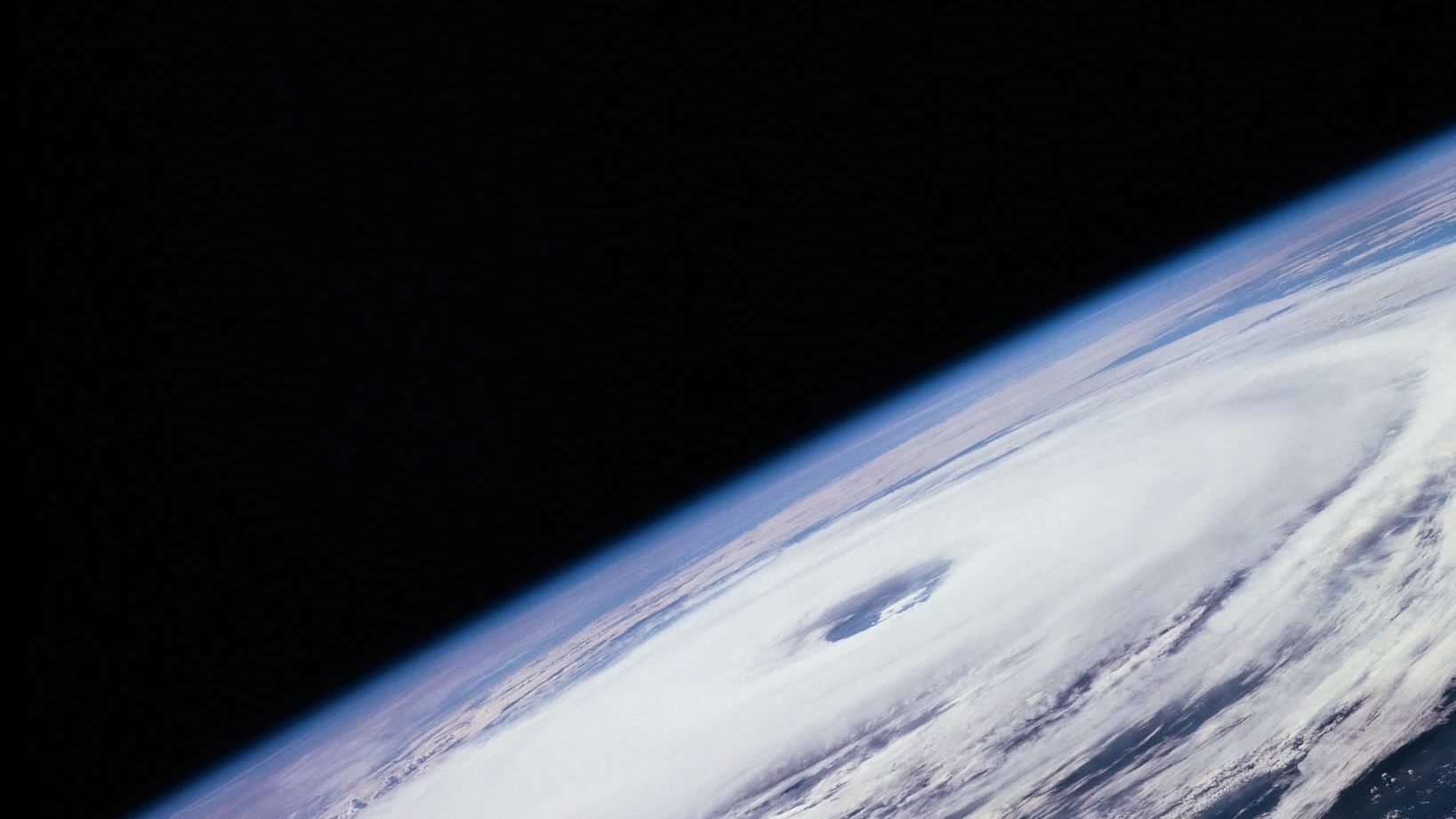
Caribbean nations struck by devastating hurricanes six months ago are mostly up and running, but still showing deep scars of substantial damage that's estimated to reach up to three billion US dollars.
And even as the island's most hard-hit slowly rebuild, they have an eye on the new hurricane season, which is less than three months away.
Evidence of the destruction – damaged homes, fallen trees and collapsed bridges – remains visible in countries such as Dominica, the US and British Virgin Islands, Puerto Rico, St Martin/St Maarten and Anguilla.
In Puerto Rico, which felt the fury of both Hurricanes Irma and Maria last September, about 150,000 homes and businesses – 10 percent of the US territory's customers – are still waiting for electricity.
US media report that hundreds of thousands of Puerto Ricans have fled to the American mainland in the wake of the storms.
On the tiny island of Barbuda, which was evacuated after a direct hit from Irma destroyed 95 percent of properties, few people have returned so far.
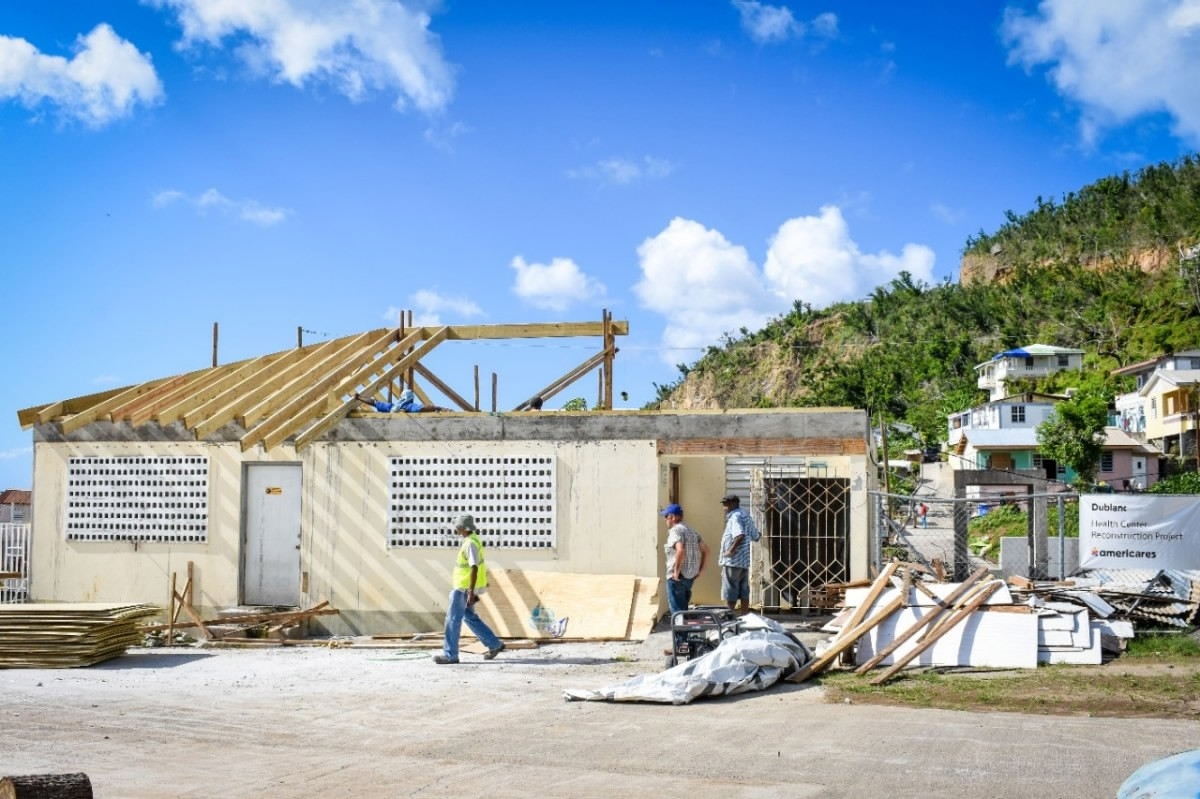
China is providing funds for house and roof rehabilitation in Dominica. /UNDP photo
China is providing funds for house and roof rehabilitation in Dominica. /UNDP photo
Most of the 1,800 residents are still on the sister island of Antigua because of a shortage of electricity.
In a status update on the some of the remedial work taking place, the United Nations Development Programme (UNDP) said it was working with some of the governments to boost climate resilience.
It said the focus in Dominica and Barbuda was on providing more resilient roofs thanks to a grant of five million US dollars from China.
The UNDP's representative in the Eastern Caribbean, Stephen O'Malley, praised the Chinese for helping the organization promote disaster-resilient communities.
In Dominica, where almost half of the buildings were severely damaged or destroyed, many rural communities remain without power while telephone and internet services are "in shambles," according to a report on the website of Travel Weekly.
Some residents of the British Virgin Islands, a UK territory, are still in a shelter.
One of them, 34-year-old Makeba Hesky, who has a 10-month-old child, told the BBC this month, "it seems to me like everybody just give up on us."
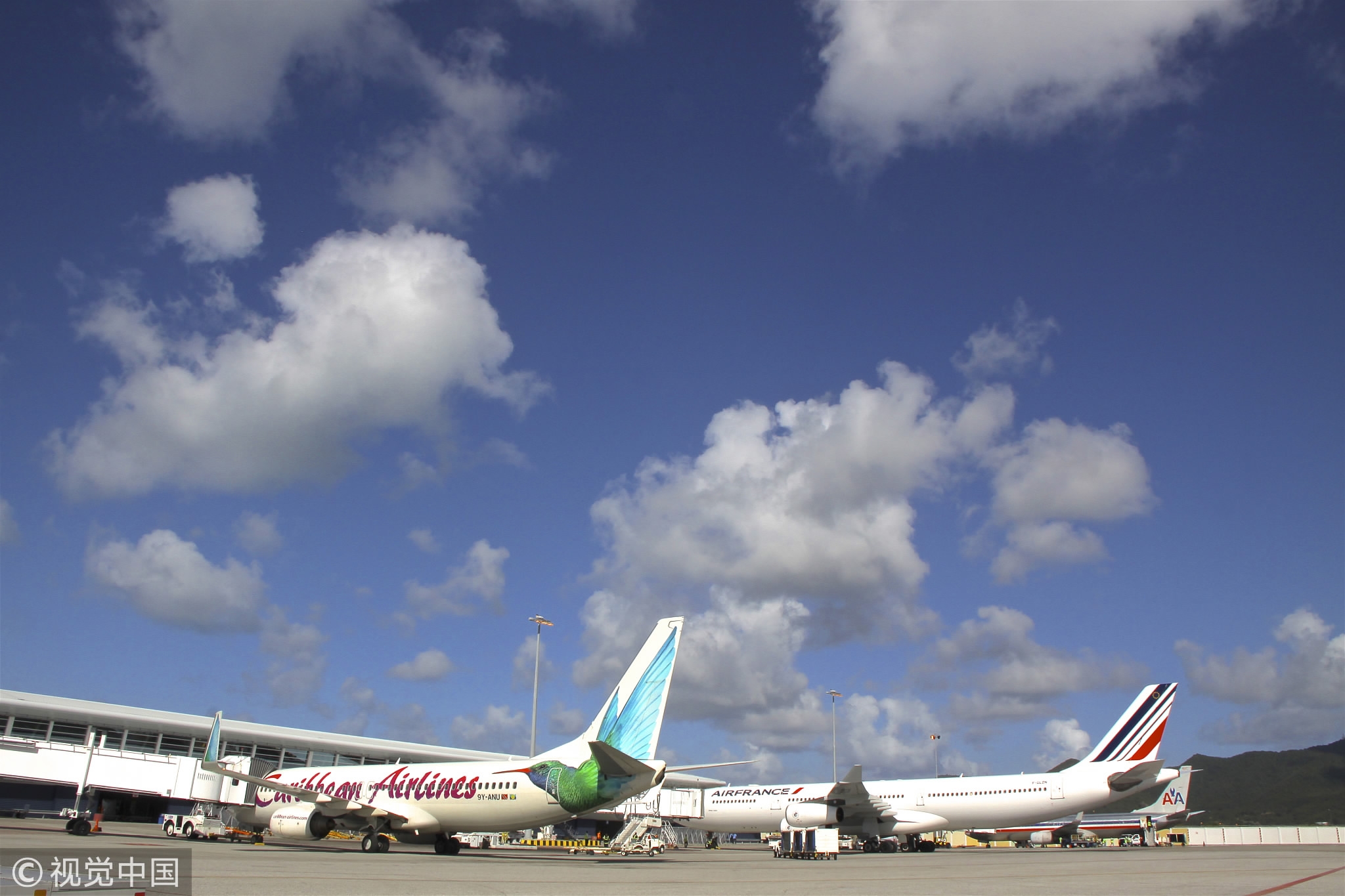
Princess Juliana Airport serving St Martin (French) and St Maarten (Dutch) has reopened with limited service. /VCG photo
Princess Juliana Airport serving St Martin (French) and St Maarten (Dutch) has reopened with limited service. /VCG photo
Her reaction was symptomatic of criticism of the authorities response in the UK.
A House of Commons parliamentary committee said last week that the government in London was ill-prepared to help British overseas territories in the Caribbean after the havoc wreaked by the hurricanes. Along with the BVI, Anguilla and the Turks and Caicos Islands suffered damage.
"Given the Caribbean's vulnerability to hurricanes we would have expected the FCO (Foreign Office) already to have had a good understanding of the resources available and an agreed collaborative international strategy in place," the Commons Foreign Affairs Committee said.
The Foreign Office responded that the destructive force of Irma and Maria was "unprecedented" and it had faced one of its "most complex crises" in modern times.
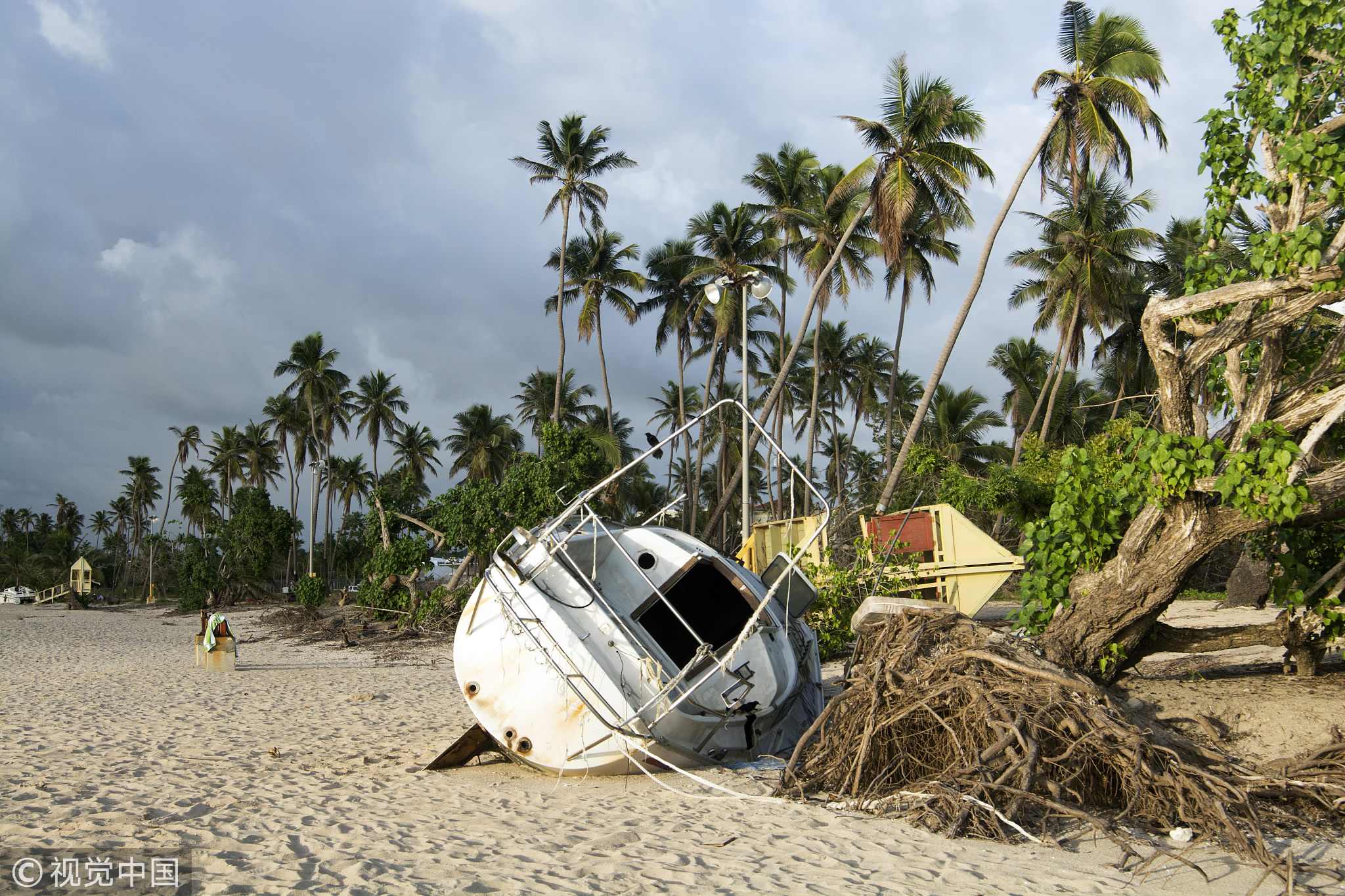
A sailboat destroyed by Hurricane Maria in Puerto Rico. /VCG photo
A sailboat destroyed by Hurricane Maria in Puerto Rico. /VCG photo
Criticism was also made of the response of the authorities in the US regarding the disaster response management in its territories.
“Everything is going badly,” said Genesis Muñoz, a 19-year-old Puerto Rican student. “It bothers me that there are people who live in their bubble of privilege saying everything is okay. It’s not, and I can’t judge those who leave because in the long term I know that I will also have to leave for my career.”
The Canadian government has cautioned its citizens about traveling to the USVI and Puerto Rico, saying that although things had improved, there are still major disruptions to essential services such as transportation, power, water and food supply and telecommunications.
Overall, despite Maria and Irma, 2017 was a relatively good year for the travel trade in the region, even though things slowed toward the end of the year in the aftermath of the hurricanes.
Overall tourism visits increased by 1.7 percent, the eighth consecutive year of growth, according to the inter-governmental Caribbean Tourism Organization.
"Fortunately, tourists have not abandoned the Caribbean," said Karolin Troubetzkoy, president of the Caribbean Hotel and Tourism Association (CHTA). "Visiting the hurricane-hit islands greatly helps the local residents."
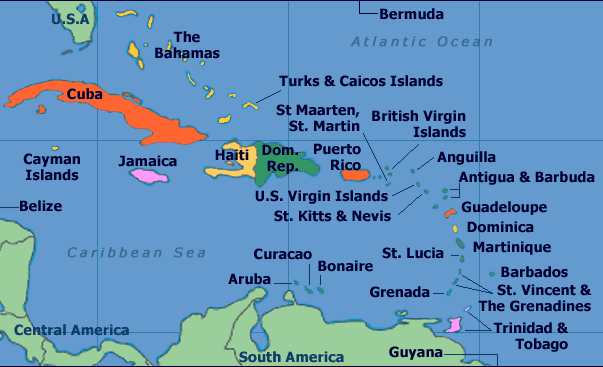
The CHTA reported last month that close to half of its member hotels on the most badly affected territories were back in business.
Last December, Caribbean governments launched a new public-private coalition to create the world's first "climate-smart zone" at the One Planet Summit organized by French President Emmanuel Macron.
It's an ambitious 8-billion-dollar investment plan to bring greater energy and infrastructure resilience that was sadly lacking when Irma and Maria slammed into the region.
After last year, many of its residents won't be looking forward to the next Atlantic-Caribbean hurricane season which starts on June 1.
Experts are predicting that 2018 could be another busy one.
Top photo: Hurricane over planet earth, view from space (digital enhancement). /VCG photo

SITEMAP
Copyright © 2018 CGTN. Beijing ICP prepared NO.16065310-3
Copyright © 2018 CGTN. Beijing ICP prepared NO.16065310-3